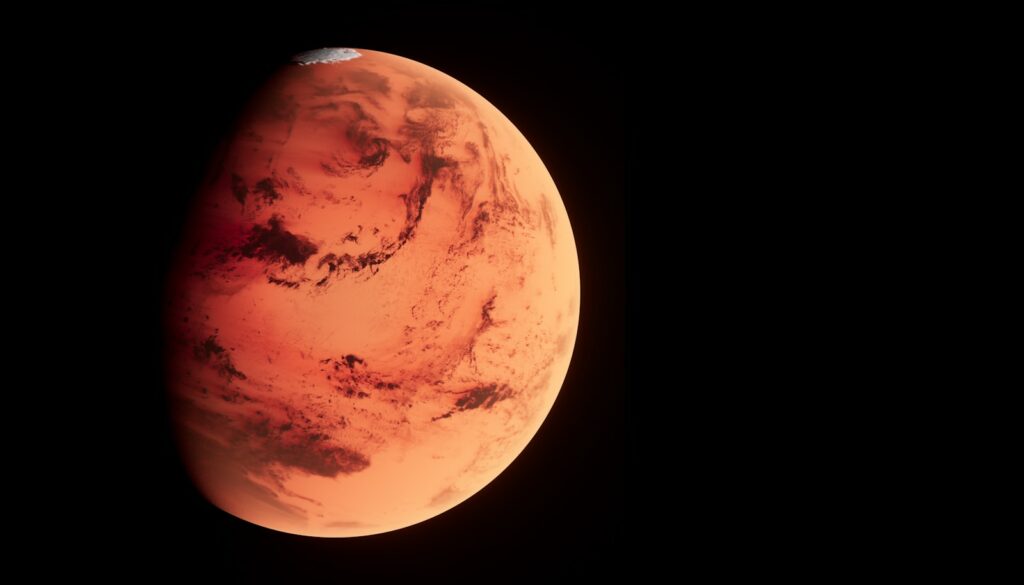The dream of colonizing Mars has captivated humanity for generations, emerging from the realm of science fiction and advancing towards the cusp of reality. Visionaries, scientists, and governments worldwide are working tirelessly to turn this dream into an achievable goal. But where do we stand today in making Mars colonization a feasible endeavor? This post delves into the progress, challenges, and future prospects of humanity’s journey to establish a foothold on the Red Planet.
The Allure of Mars
Mars has long been considered the most suitable candidate for human colonization within our solar system. Its relatively benign environment, compared to other planets, presence of water ice, and day length similar to Earth’s make it an appealing target for exploration and permanent settlement. The drive to colonize Mars is fueled by a blend of scientific curiosity, the desire for a “plan B” for humanity, and the spirit of exploration that defines our species.
Technological and Scientific Milestones
Robotic Exploration
The journey to Mars colonization began with robotic explorers. Landers and rovers like Viking, Pathfinder, and more recently, Curiosity and Perseverance, have laid the groundwork by mapping Mars’ geography, analyzing its climate, and searching for signs of past water and life. The data collected by these missions have been invaluable in understanding Mars’ environment and assessing the challenges of human habitation.
Advances in Space Travel
SpaceX’s development of the Starship, a fully reusable spacecraft designed for long-duration flights, is a game-changer for Mars colonization. Its capacity to carry large numbers of passengers and cargo is crucial for establishing a sustainable human presence on Mars. Meanwhile, NASA’s Artemis program, aiming to return humans to the Moon, serves as a stepping stone, developing technologies and operational experience for future Mars missions.
In-Situ Resource Utilization (ISRU)
The ability to utilize Mars’ natural resources is critical for long-term colonization. Technologies for extracting water from ice, producing oxygen from the CO2-rich atmosphere, and using Martian soil to fabricate building materials are under development. These technologies will enable settlers to produce essential resources on Mars, reducing the need for resupply missions from Earth.
Challenges Ahead
Despite significant progress, numerous hurdles remain on the path to Mars colonization.
Life Support and Sustainability
Creating a self-sustaining ecosystem millions of miles from Earth is a monumental challenge. Life support systems must be fail-proof, capable of providing air, water, and food indefinitely. Mars’ harsh environment, including extreme cold, radiation exposure, and dust storms, adds complexity to developing sustainable habitats.
Health and Wellbeing
The long journey and extended stays on Mars pose significant health risks, from bone density loss and muscle atrophy due to lower gravity, to psychological effects of isolation and confinement. Mitigating these health risks is crucial for the success of long-duration missions.
Economic Viability
The enormous cost of Mars colonization raises questions about economic viability. Funding such an endeavor requires not only government investment but also private sector involvement and international cooperation. Developing a sustainable economic model for Mars colonization is essential for its long-term success.
Ethical and Legal Considerations
Colonizing Mars also presents ethical and legal challenges. Who will govern Mars? How will resources be allocated? The establishment of legal frameworks and ethical guidelines for colonization is necessary to prevent conflict and ensure the equitable use of Martian resources.
 Looking Ahead: The Road to Mars
Looking Ahead: The Road to Mars
The timeline for Mars colonization is subject to much speculation. Some visionaries, like Elon Musk, hope to see the first human missions to Mars within the decade, with colonization efforts to follow. However, the consensus among the scientific community is that a more realistic timeline might extend several decades into the future. Achieving the dream of Mars colonization will require incremental steps:
Continuous Robotic Exploration: To gather more data on Mars’ environment and resources.
Human Missions to Mars: Short-term missions will test life support systems, habitat designs, and ISRU technologies.
Establishing a Permanent Human Presence: Building the infrastructure for a self-sustaining colony, including habitats, greenhouses, and energy generation facilities.
Expansion and Sustainability: Expanding the colony to support larger populations and achieving a self-sustaining ecosystem.
Conclusion
Mars colonization represents one of humanity’s most ambitious goals. While we have made significant strides towards making this dream a reality, a myriad of challenges remain to be addressed. The journey to Mars will require global cooperation, billions of dollars in investment, and breakthroughs in space travel, habitat construction, and life support systems.
As we stand on the brink of this new frontier, it’s clear that colonizing Mars is not just about exploring a new world; it’s about the survival and expansion of humanity itself. The path to Mars is fraught with obstacles, but it’s a journey that has the potential to unite us in a common purpose, pushing the boundaries of what’s possible and ensuring the long-term future of our species.

